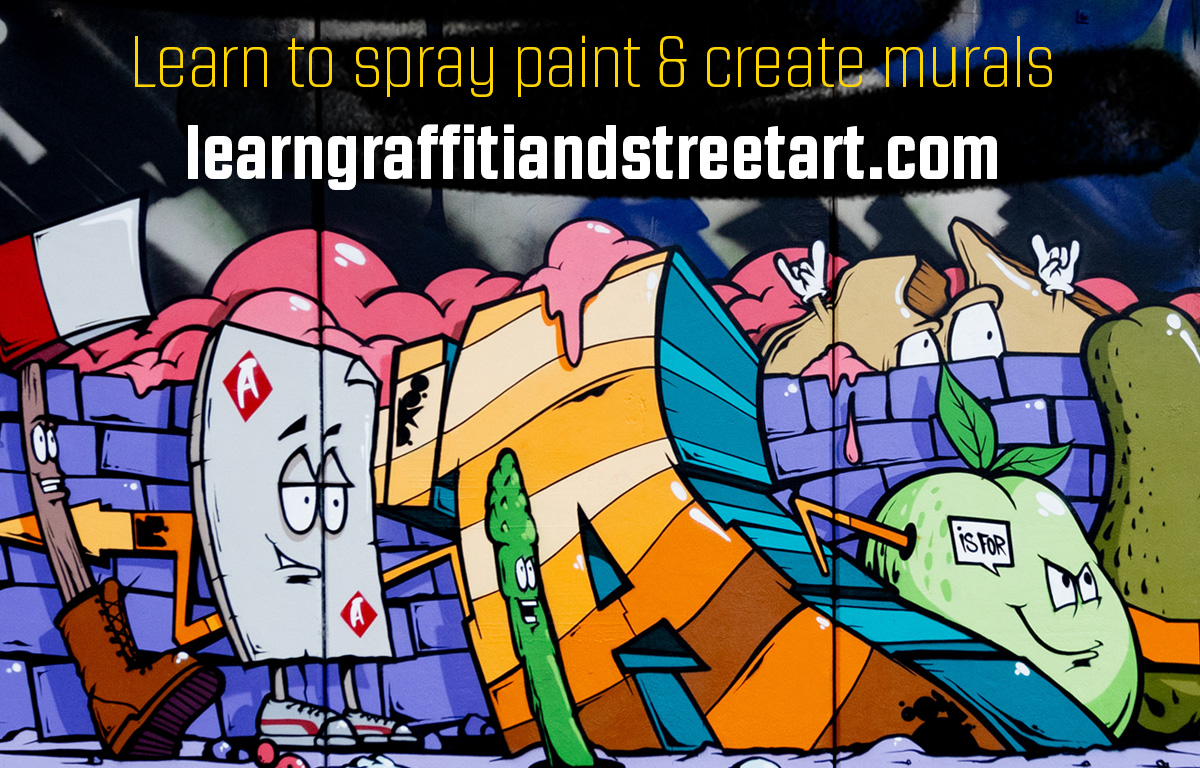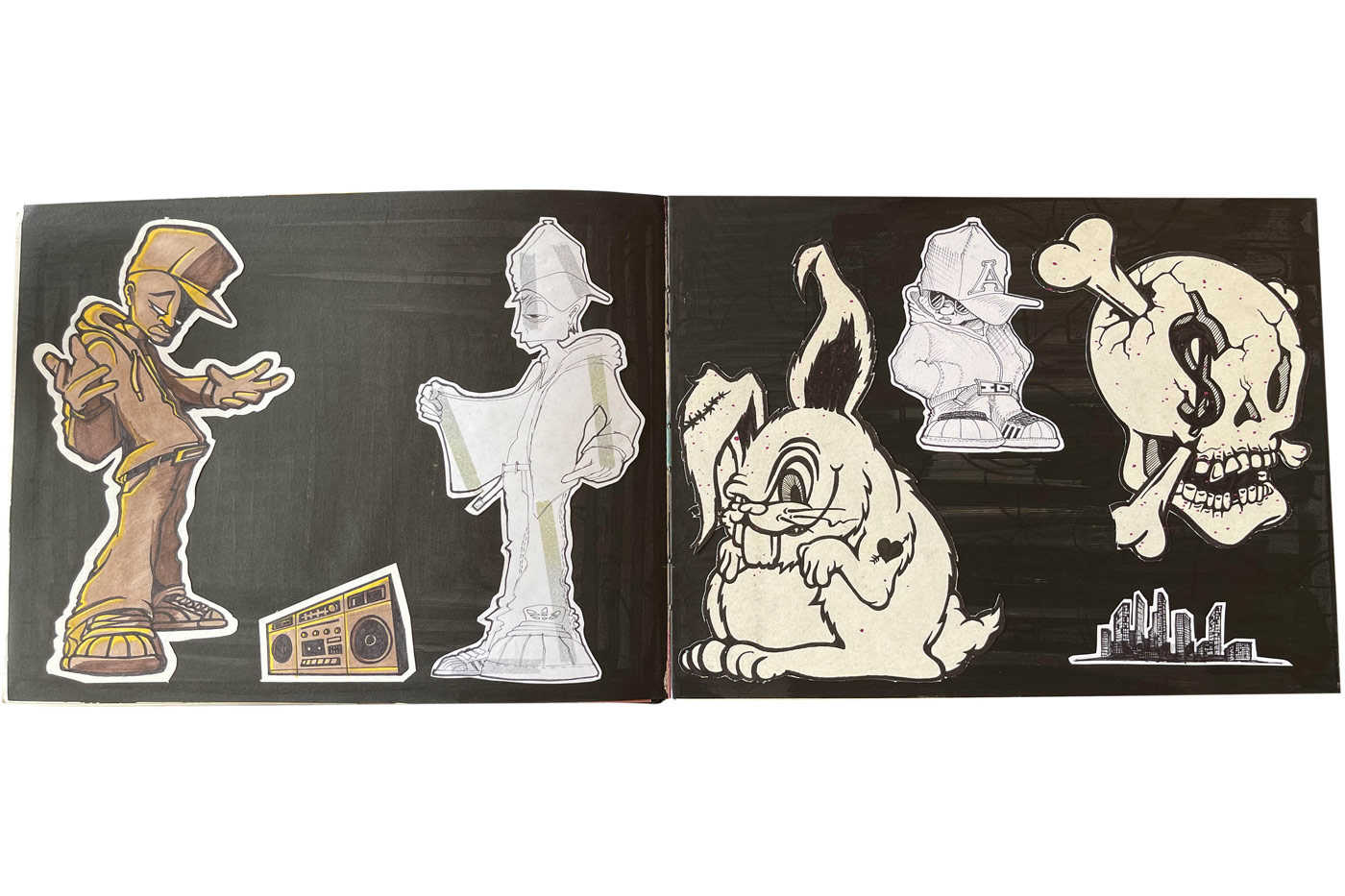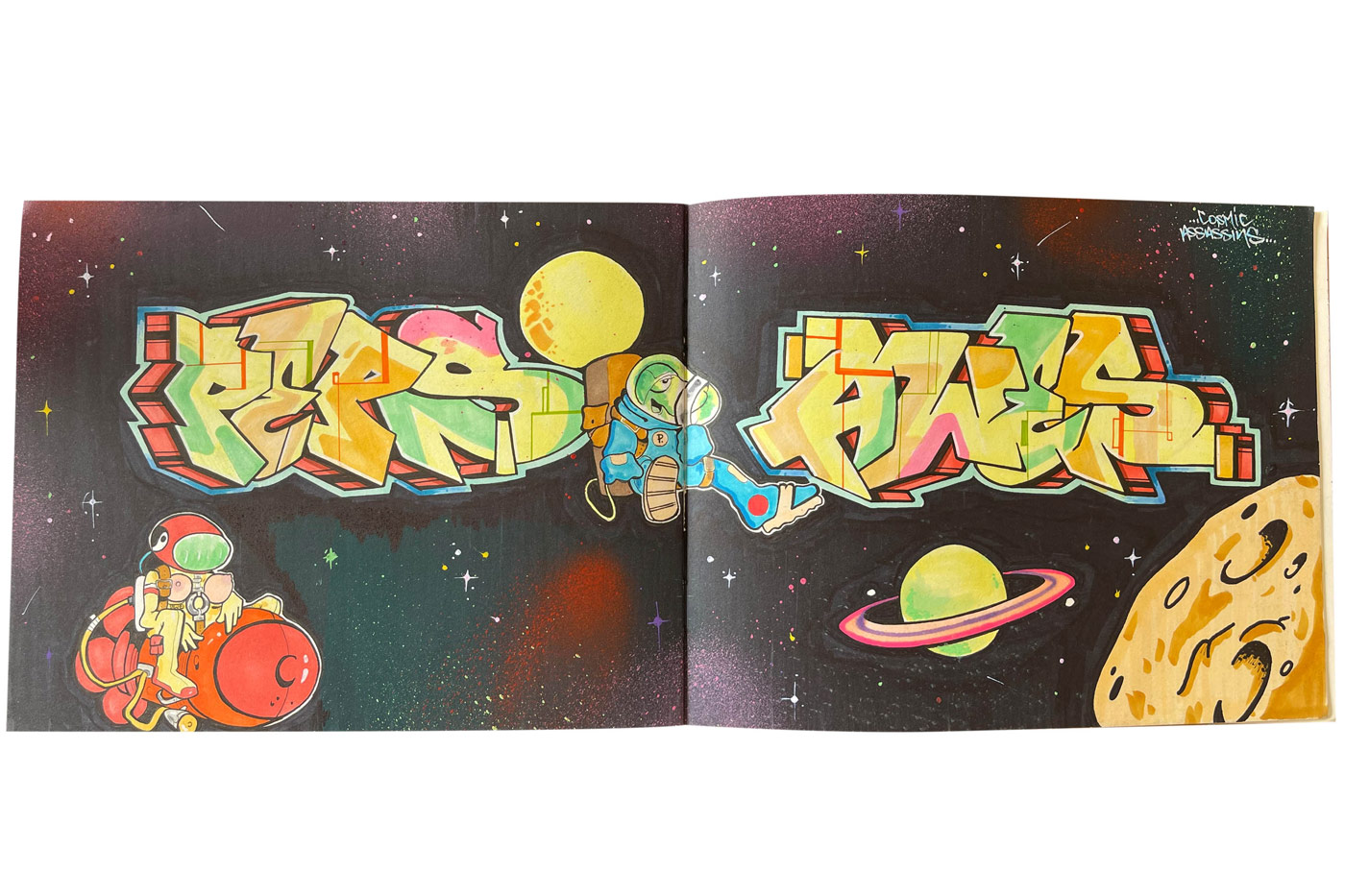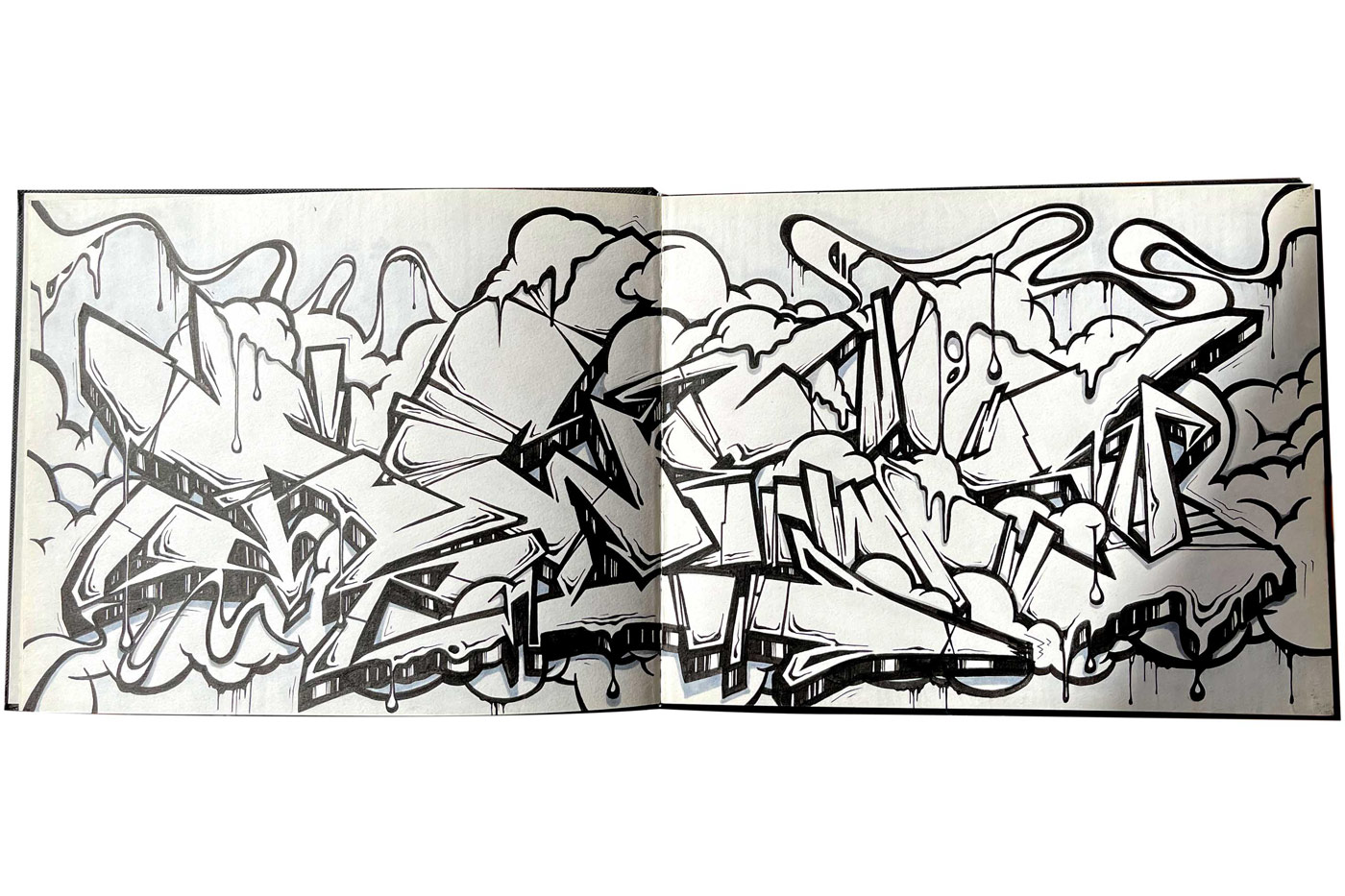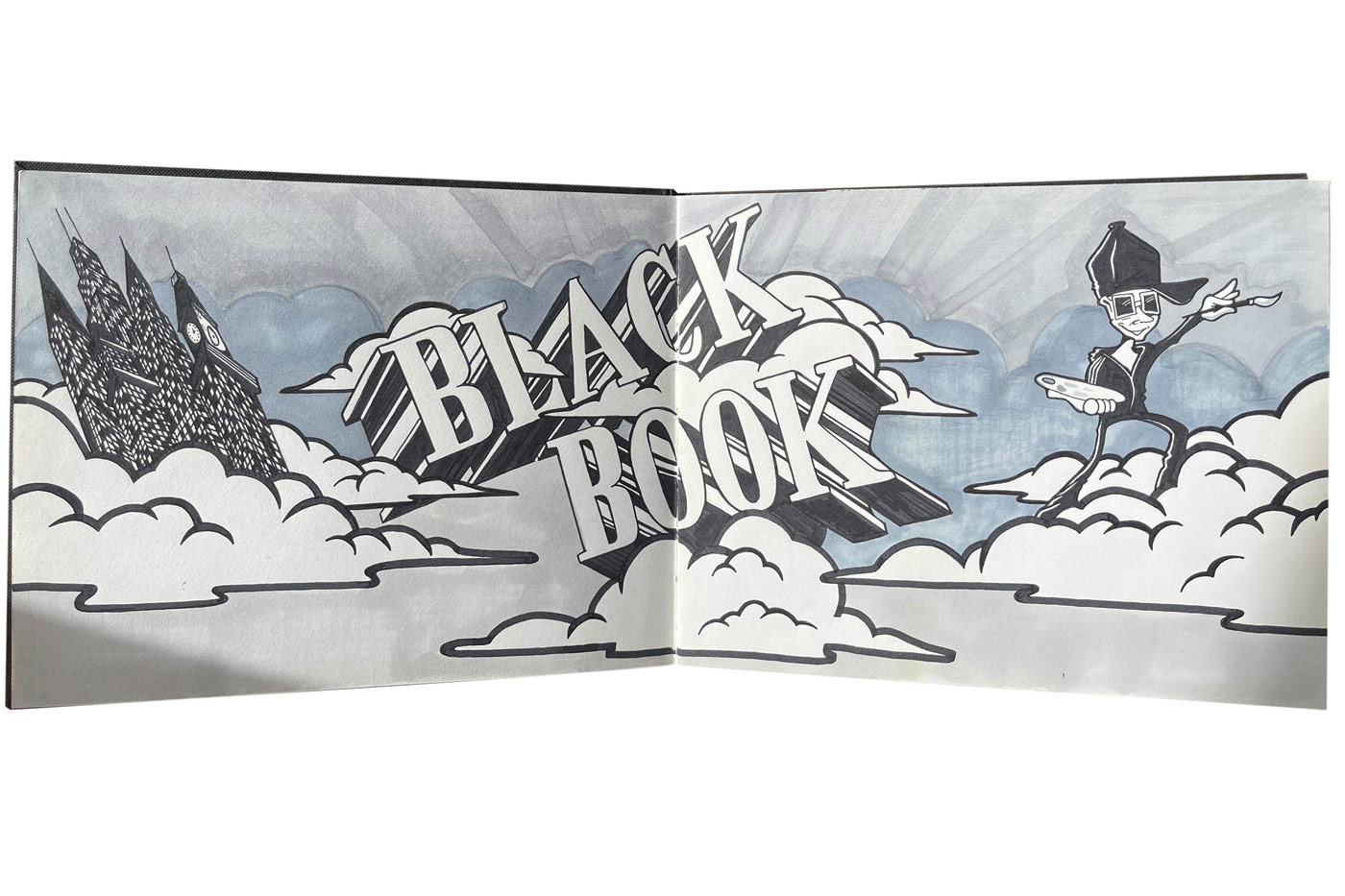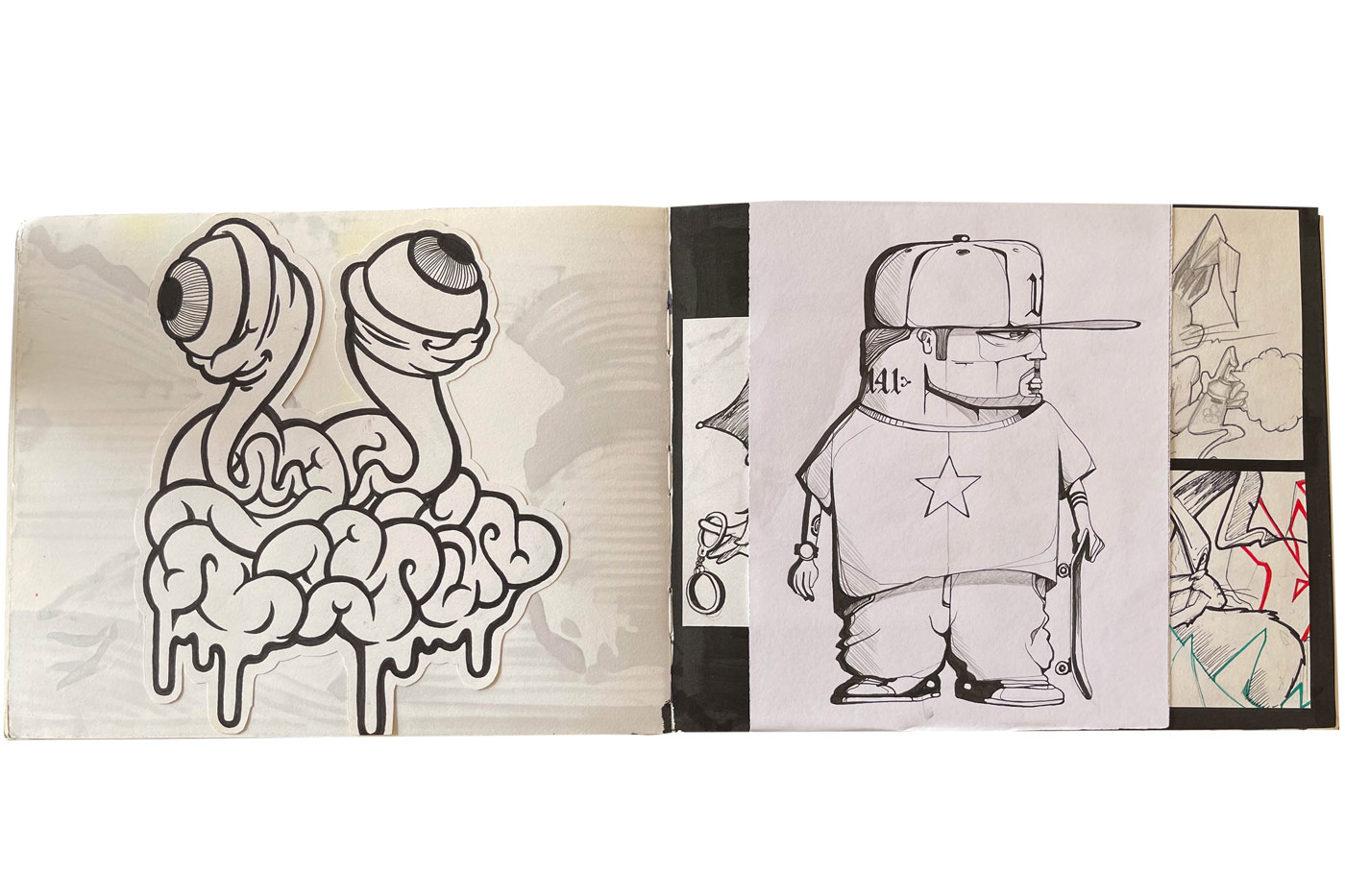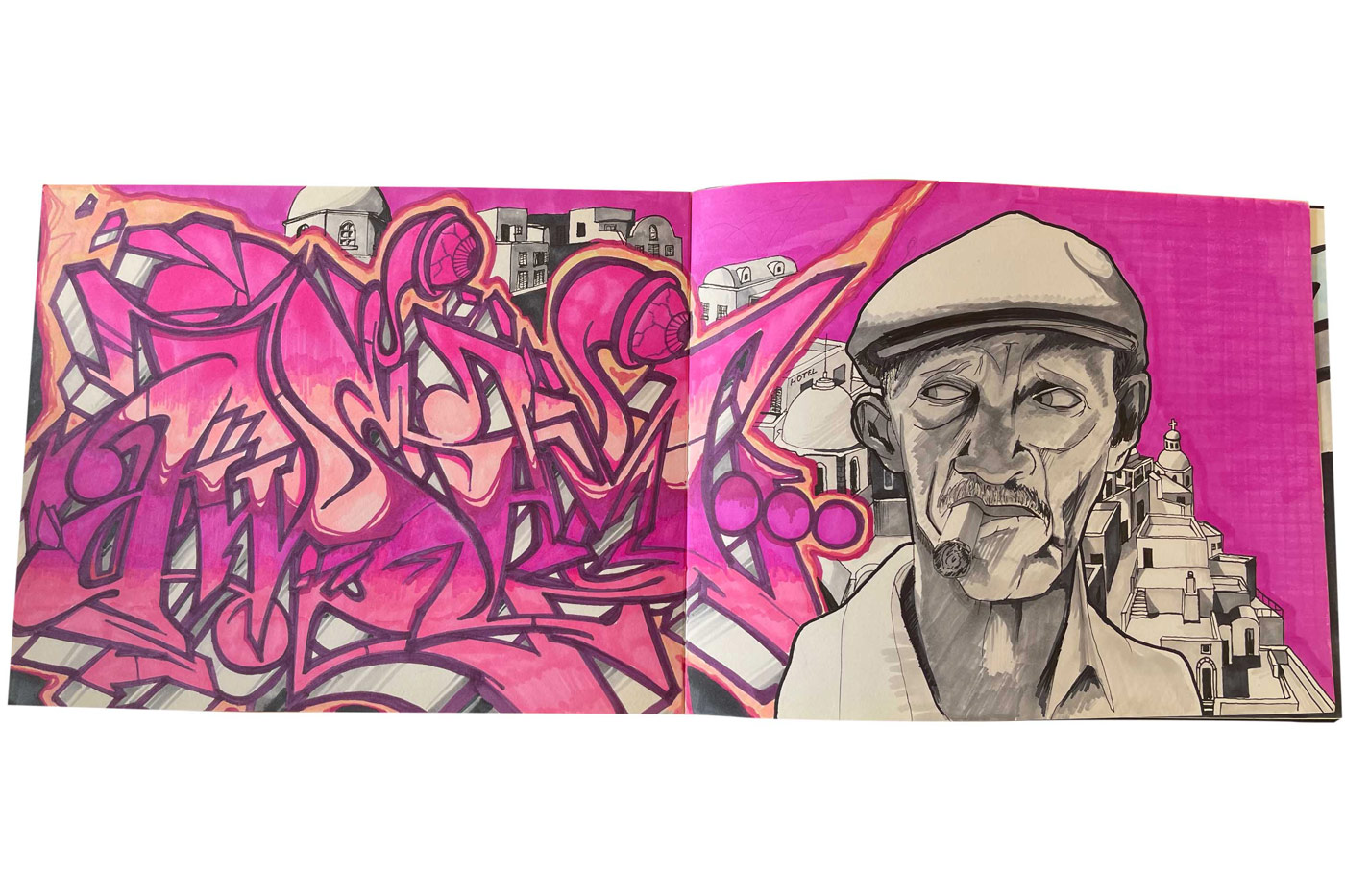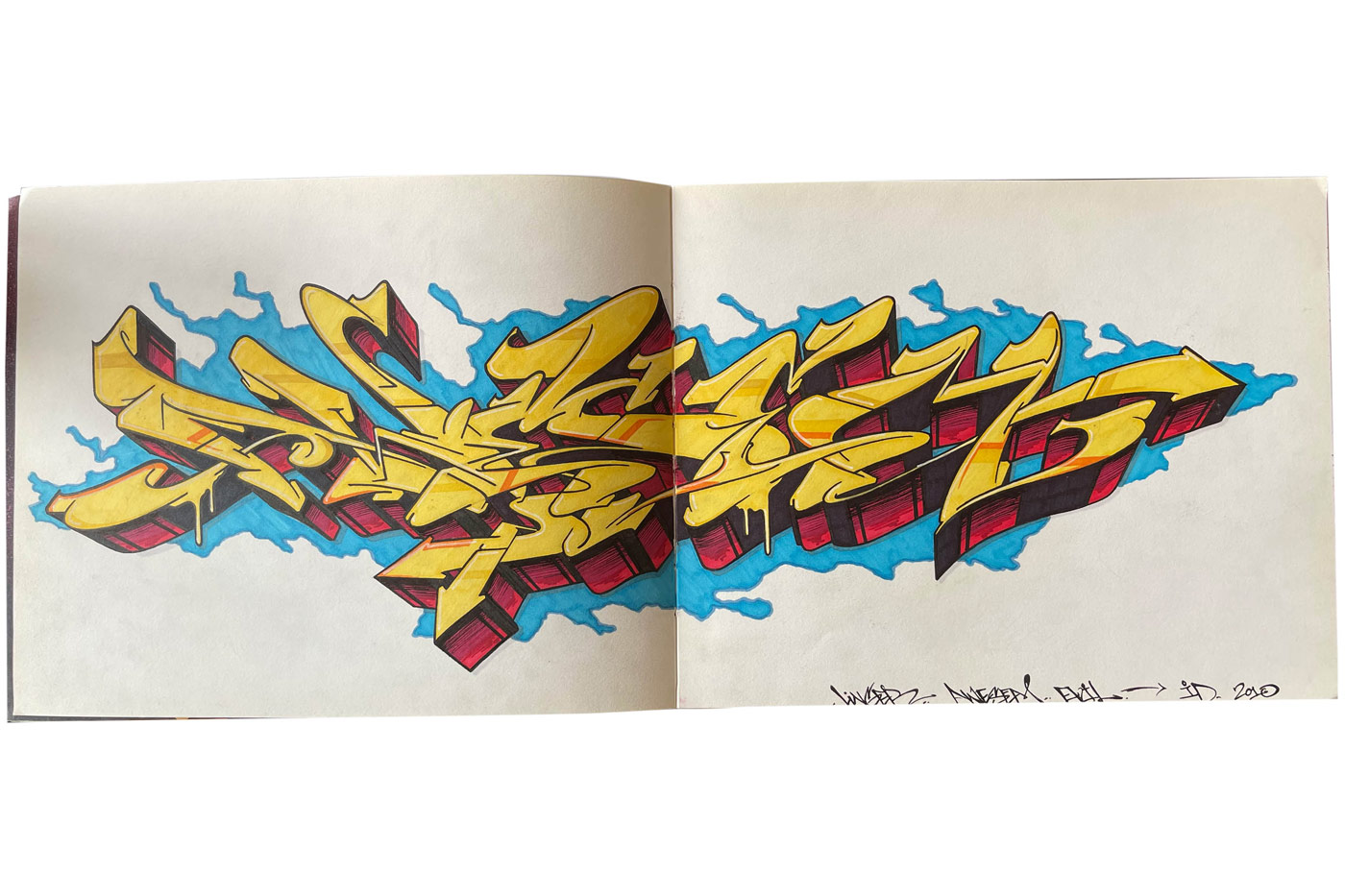Graffiti Sketches
How to draw graffiti sketches for beginners
All graffiti and street art starts with a design. Usually, the design starts with a sketch. Sketching for artworks helps develop ideas into a visual reality. A sketch also gives the artist a plan for their painting. Here's a run down on how 90 Degrees' Creative Director Dan Wenn approaches sketching for a graffiti piece.
A lot of graffiti artists just take a pencil sketch or black marker sketch with them to paint - they don’t need to apply colour to their sketch as they have a plan in their head. Personally, I always take more colours than I need to paint a wall. This way I have options or I can make changes as I paint.
The shape and contents of an artwork are harder to define than colours, which is why most people just do an outline or black and white sketch of their idea.
These days a graffiti sketch is easily done on an iPad or tablet and colour schemes can be tested in Photoshop or other design programs like Procreate, but if you don’t have access to these tools, a colour sketch can be produced by the following process:
- Do light grey lead sketch marks of your idea and graffiti letters
- Use an eraser to define your artwork, then...
- Do a final grey lead sketch over the best lines
I would use a slightly darker grey lead for the final step. Once you've done this you can apply colour using water-based markers, watercolour paint, paint markers, pencils or whatever your chosen materials may be. Once you've applied your colour, go back over your grey lines with a marker (black will stand out the most) and you will have a finished colour sketch of your artwork.
How do I start sketching graffiti?
If you're new to graffiti or street art then getting started is probably the most fun part - it's a real journey of discovery. Firstly, you'll need some kit. Start with the following:
- A visual diary or sketchbook where you will keep all of your ideas and sketches;
- Some grey lead pencils;
- A sharpener and eraser;
- A couple of different width fine-liners (black).
If you want to work in some colour, also get yourself some textas, markers, paint markers, pencils. I personally like using alcohol based markers like Copics and paint markers like Poscas or Molotows for finer details.
The first step is to get inspired by what others are doing and discover some artworks that really get you excited. The only way to learn is to look at what others are doing. You can try emulating what these artists do in your sketchbook. Try to do your own designs, don’t trace or copy just get inspired. Eventually, with enough practice you will develop your own style and work out your preferred techniques.
Start with a word (like for example your name) and remember the process:
- light grey lead sketch lines first,
- then refine with a darker pencil line,
- then add colour
You may want to then add a final outline to your sketch with a black marker.
Want to be a street artist? Here's Dan's top five tips
As a self-taught street artist, I've learnt so much over the years.
I've put together my top tips, with detailed info I wish I'd known. From developing your style and ideas, to setting up your kit, I hope my tips will help and inspire you to keep creating art.
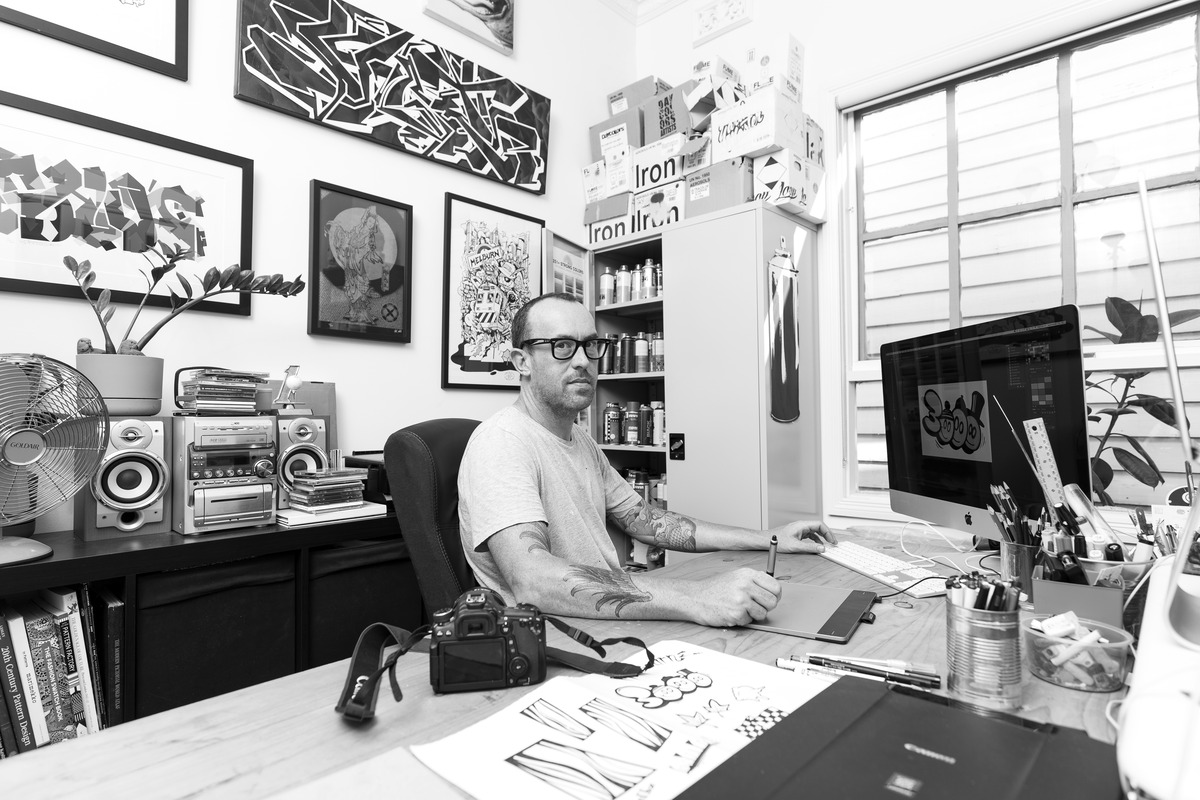

Our Services
- MuralsGraffiti and street art murals for anywhere - hospitality, office, residential...01
- Brand ActivationsBranded live graffiti for product launches & brand activations. 02
- EventsLive artwork production by graffiti and street artists for events.03
- Removable ArtStreet art and graffiti prints, canvases and wallpaper.04
- DesignLogos, rebranding, graffiti and street art graphic design for print and digital.05
- WorkshopsLearn to paint with a spray can via a graffiti workshop experience.06
- Content CreationFilm a mural being painted and share the content on socials.07
- MaintenanceCare and upkeep of outdoor and indoor graffiti and street art murals.08
Read more about our services. Learn about our process.

